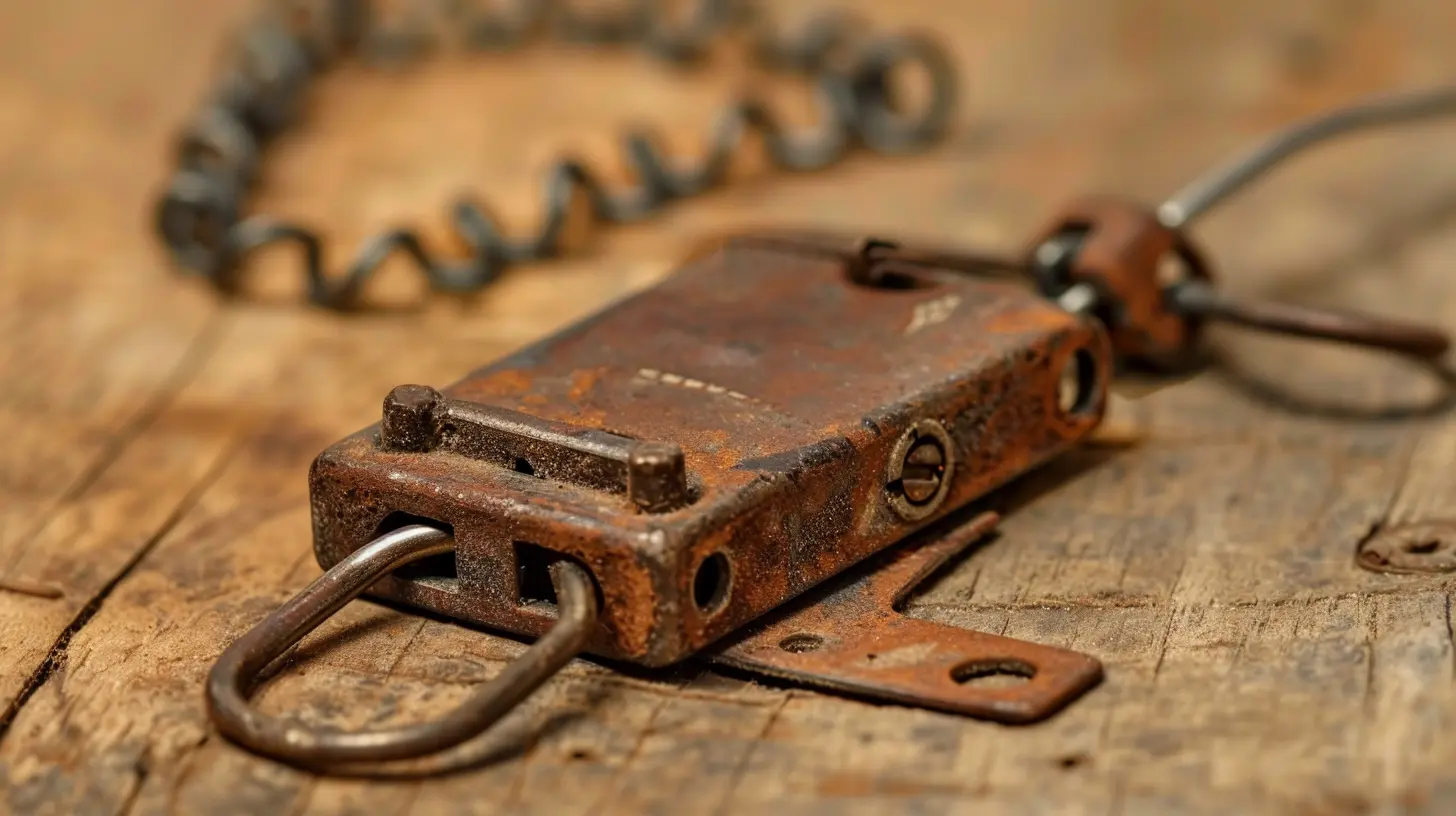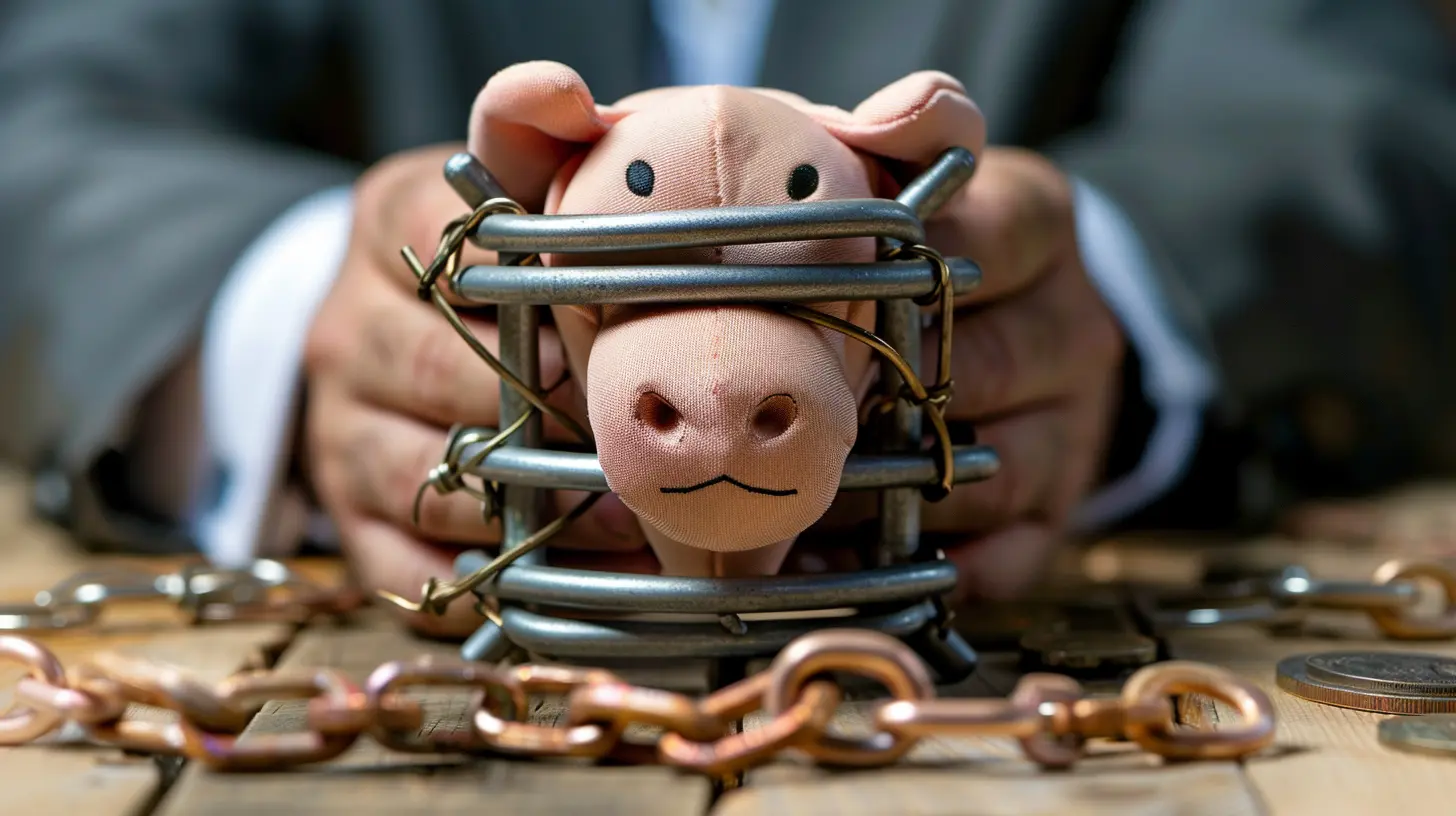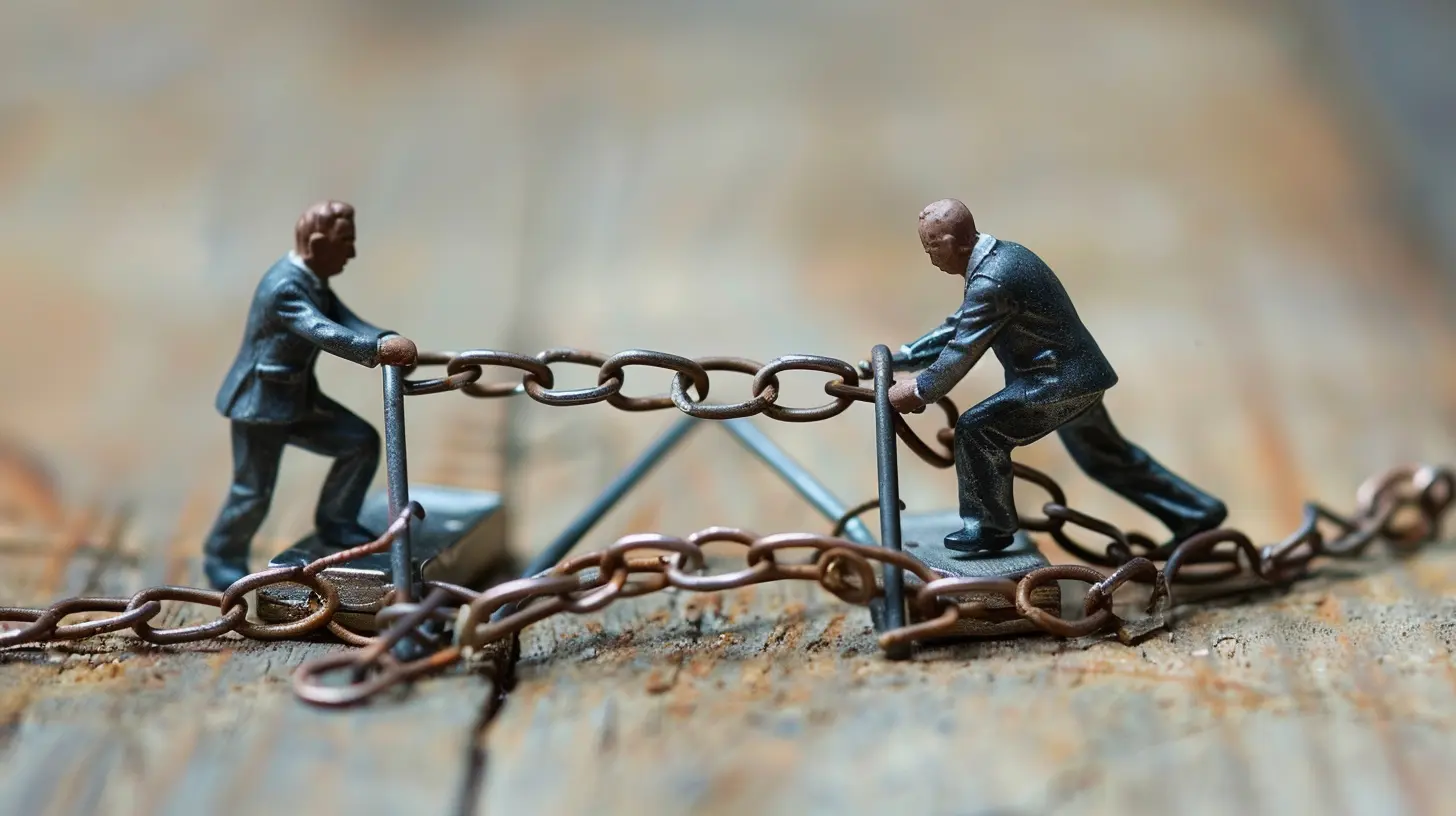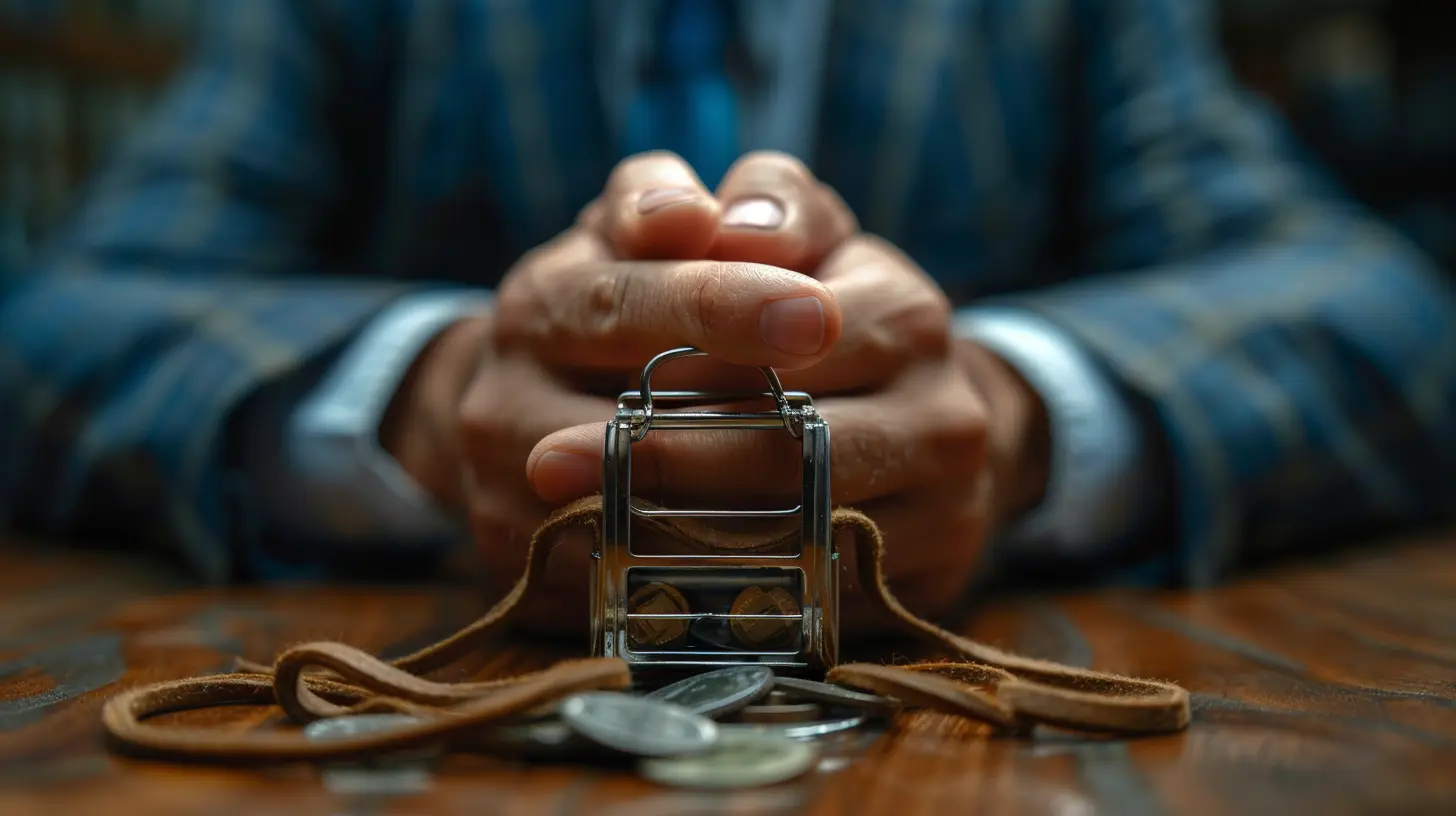How to Avoid Debt Traps in a Consumer-Driven Society
13 June 2025
Let’s be honest—it feels like everywhere you turn, someone’s trying to sell you something. From that shiny new phone upgrade every year to the constant “limited-time” sales popping up on your screen, modern life has become a whirlwind of temptation. We live in a consumer-driven society where spending feels almost... expected.
But here’s the catch: this buying frenzy often leads people straight into the jaws of debt traps. Sound familiar? You’re not alone. The good news? You can break free from this cycle—and I’m going to show you how.
So, brew that cup of coffee, get comfy, and let’s talk about real-world strategies to avoid falling into the financial quicksand we call debt.
What Exactly Is a Debt Trap?
Before we dive into the how-to, let’s get crystal clear on what a debt trap actually is. A debt trap is when someone ends up in a situation where they owe money and can’t keep up with the payments. So, they borrow more to cover the old debt. It’s like trying to dig your way out of a hole with a shovel that’s digging deeper.Sound scary? It is. And it’s more common than you think.
Why Is It So Easy to Fall Into One?
We're living in a time where instant gratification is king. You can “Buy Now, Pay Later” with just a swipe or a tap. Credit cards practically beg you to spend. And social media? It’s turned lifestyle envy into a full-blown epidemic.You see your friend’s new car, someone's glamorous vacation, or that influencer’s $500 skincare routine, and suddenly, your wallet starts itching. But here’s the thing: most of those people are probably swimming in debt themselves.
Warning Signs You’re Slipping Into a Debt Trap
Let’s call it like it is—denial is dangerous. Recognizing the red flags early can save you a ton of money and stress down the road. Ask yourself:- Are you relying on credit cards for everyday expenses?
- Do you avoid checking your bank account?
- Are you always just making minimum payments?
- Is your debt growing faster than your savings?
If you said yes to any of these, don't panic—but do pay attention.
Step-by-Step: How to Avoid Debt Traps in a Consumer-Driven Society
1. Know Your Spending Triggers
Let’s start with some self-reflection. Ever notice how some purchases feel almost automatic? Like, your mood’s down, and boom—you’re online shopping. Or maybe you treat yourself every payday…and end up broke by the weekend.These are emotional triggers. Once you’re aware of them, you can start to replace those knee-jerk spending habits with healthier responses. Try journaling your expenses for a month. Patterns will appear—trust me.
2. Create a Budget That Actually Works for You
Ugh, the “B” word. But hear me out—budgets don’t have to be restrictive. Think of it more like a game plan for your money.Start simple:
- Track your income
- List all your essential expenses (rent, food, bills)
- Set limits for non-essentials (yes, coffee shop visits count)
- Leave room for savings and emergencies
Use apps like Mint, YNAB, or even a good old-fashioned spreadsheet. The key is consistency, not perfection.
3. Prioritize Building an Emergency Fund
Ever had your car break down right after you paid rent? Life loves throwing curveballs—and without an emergency fund, those surprises go straight onto your credit card.Start small. Even $500 in a high-yield savings account can make a huge difference. Treat it like a safety net, not a piggy bank.
4. Think Before You Swipe (Seriously)
Credit cards are sneaky. They make it easy to spend money you don’t have.Ask yourself:
- Do I really need this?
- Can I pay it off in full before the due date?
- What happens if I don’t?
If you can’t answer with confidence, maybe it’s a no for now. Delayed gratification is your secret weapon.
5. Ditch the Comparison Game
Remember: comparison is the thief of joy—and financial freedom. Everyone’s flaunting their best life online, but you don’t see the credit card bills behind those luxury handbags or those “dream vacations.”Focus on your goals. Your financial journey is personal, and keeping up with the Joneses? That’s a fast-track ticket to the debt trap.
6. Opt for Cash or Debit When Possible
One surefire way to keep your spending in check? Use real money.There’s something psychological about handing over cash—it hurts a little more, and that’s a good thing. It keeps you mindful. If cash isn’t practical, try using a debit card so you’re only spending what you actually have.
7. Learn to Say No—Even to Yourself
Impulse control is like a muscle. The more you practice, the stronger it gets.Those “one-click" purchases? Sleep on them. Want a big-ticket item? Give yourself a 30-day rule. If you still want it after 30 days and it fits your budget, go for it. If not, you probably didn't need it in the first place.
8. Avoid “Buy Now, Pay Later” Schemes
They look so innocent, don’t they? Four payments of $25 sounds way better than $100 upfront. But multiply that across several purchases, and you’re looking at a tangled web of future payments.It may seem convenient, but these schemes can build up faster than you realize and drain your future earnings. Think of them like credit cards without the same protections—and often more dangerous.
9. Educate Yourself About Personal Finance
Here’s a crazy thing: we’re expected to handle our finances without ever being properly taught how.Take control of your education. Whether it’s podcasts like “The Ramsey Show” or books like Your Money or Your Life, learning how money works gives you the upper hand.
Knowledge is power. And when it comes to money, it’s also freedom.
When You’re Already in the Debt Trap...
Okay, you might be thinking, “This is great, but what if I’m already there?”Don’t worry. Here’s what to do:
1. Stop Accumulating New Debt
Freeze those credit cards, unsubscribe from those sale emails, and hit pause. You can’t get out of a hole if you keep digging.2. List and Prioritize Your Debts
Tackle them either with:- The Snowball Method – Pay off the smallest first (for the quick win)
- The Avalanche Method – Pay off the highest interest first (for long-term savings)
Both work. Pick the one that keeps you motivated.
3. Consider Working with a Credit Counselor
Sometimes we need help. A certified credit counselor can negotiate with lenders, create a debt management plan, and help you breathe again. Just make sure they’re legit (nonprofit, accredited, etc.).The Long Game: Building a Debt-Free Lifestyle
Getting out of debt is one thing. Staying out? That’s the real magic.1. Make Saving a Habit, Not an Afterthought
Set up automatic transfers to your savings account every payday—even if it’s just $10. Over time, it adds up, and it reinforces the habit.2. Celebrate Progress, Not Perfection
Every time you make a smarter money choice, that’s a victory. Paid off a credit card? Celebrate (responsibly!). Stuck to your budget all month? Take a moment to be proud.Progress isn’t linear, but it is powerful.
Final Thoughts
Avoiding debt traps in a consumer-driven society isn't about completely cutting yourself off from spending. It's about spending smarter, being intentional, and saying no sometimes so you can say yes to bigger goals later.You don’t have to be rich to be financially free—you just need a game plan, some self-control, and a willingness to grow.
And hey, if you’ve made it this far, you’re already taking a big step in the right direction.
all images in this post were generated using AI tools
Category:
Debt ManagementAuthor:

Angelica Montgomery
Discussion
rate this article
3 comments
Leona Benson
Empower yourself with knowledge and mindfulness! By making intentional financial choices, you can break free from debt traps and build a future of freedom.
June 17, 2025 at 3:30 AM

Angelica Montgomery
Absolutely! Knowledge and mindfulness are key to making smart financial decisions and escaping debt. Focus on intentional choices for a brighter financial future.
Drew Rosales
This article offers essential insights into avoiding debt traps in today's consumer-driven society. By prioritizing budgeting, understanding credit, and resisting impulsive purchases, readers can achieve financial stability. It's crucial to stay informed and make conscious choices to maintain control over personal finances and avoid the pitfalls of excessive consumerism.
June 16, 2025 at 2:33 AM

Angelica Montgomery
Thank you for your thoughtful comment! I'm glad you found the insights valuable. Staying informed and making conscious financial choices is indeed key to avoiding debt traps.
Wade Phelps
Mindful spending prevents unnecessary debt.
June 15, 2025 at 3:14 AM

Angelica Montgomery
Absolutely! Mindful spending encourages conscious choices, helping individuals prioritize needs over wants and ultimately preventing unnecessary debt.



